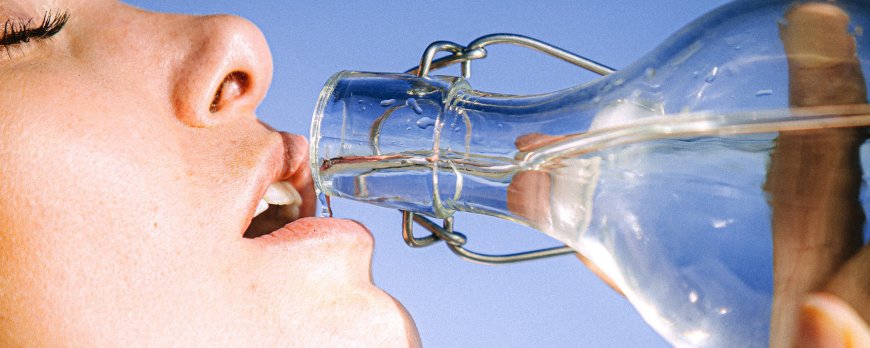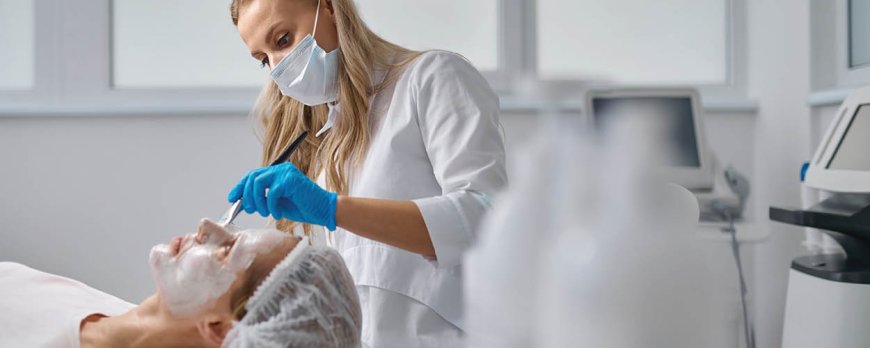How long can you stay on antibiotics for acne?
Explore 'How long can you stay on antibiotics for acne?' Learn about antibiotic duration, effects, and safety in acne treatment.

How long can you stay on antibiotics for acne?
When it comes to treating acne with antibiotics, it is important to understand how long you can safely stay on them. The duration of antibiotic treatment can vary depending on the severity of the acne and the specific antibiotic being used. Antibiotics, both topical and oral, are commonly prescribed for acne to target the bacteria and reduce inflammation. However, there is growing concern about the long-term use of antibiotics for acne due to the risk of developing antibiotic-resistant "superbugs."
Key Takeaways:
- The duration of antibiotic treatment for acne varies depending on the severity of the condition and the specific antibiotic being used.
- Oral antibiotics for acne should be limited to 24 weeks or less to minimize the risk of antibiotic resistance.
- Combining oral antibiotics with topical retinoids or benzoyl peroxide can enhance the effectiveness of treatment.
- Topical antibiotics can be used in combination with other acne-fighting ingredients, such as benzoyl peroxide or retinoids, for the treatment of mild, moderate, or severe acne.
- Alternative treatments, such as isotretinoin, hormone therapy, and a low-glycemic diet, may be considered for severe acne that does not respond to standard treatment.
It is important to address all the factors contributing to acne, including clogged pores, excessive oil production, bacterial growth, and inflammation, for successful treatment. Taking into account individual circumstances and needs is also crucial when determining the duration of antibiotic treatment for acne. By following recommended treatment guidelines and exploring alternative options, individuals can effectively manage their acne while minimizing the risks associated with long-term antibiotic use.
Understanding the Use of Antibiotics for Acne Treatment
Antibiotics, whether taken orally or applied topically, are frequently prescribed for acne treatment due to their effectiveness in targeting bacteria and reducing inflammation. When used appropriately, antibiotics can help clear acne and prevent future breakouts. Understanding the duration of oral and topical antibiotic use is crucial for optimal results.
Duration of Oral Antibiotics for Acne: The duration of oral antibiotic treatment for acne varies depending on the severity of the condition and the specific antibiotic being used. Commonly prescribed oral antibiotics for acne include doxycycline and minocycline. It is important to note that treatment with oral antibiotics should not exceed 24 weeks to minimize the risk of developing antibiotic resistance. To enhance effectiveness and reduce resistance, oral antibiotics are often combined with topical retinoids or benzoyl peroxide.
Duration of Topical Antibiotics for Acne: Topical antibiotics, such as clindamycin and erythromycin, are commonly used in conjunction with other acne-fighting ingredients like benzoyl peroxide or retinoids. The ideal length of treatment with topical antibiotics for acne can vary based on individual factors, but it is generally recommended to continue use for several weeks to months. Combining topical antibiotics with other medications helps target different aspects of acne formation, providing a more comprehensive approach to treatment.
Alternative Treatments: For individuals who should avoid or have concerns about long-term antibiotic use, alternative treatments can be considered. These may include isotretinoin (a powerful acne medication), hormone therapy, or dietary changes. When severe acne does not respond to standard treatment, these alternatives can provide effective solutions. However, it is essential to consult with a healthcare professional to determine the most suitable course of action.
Concluding Thoughts
Antibiotics, both oral and topical, play a significant role in acne treatment by targeting bacteria and reducing inflammation. The duration of their use should be carefully considered to minimize the risk of antibiotic resistance. By combining antibiotics with other acne-fighting strategies, such as topical retinoids or benzoyl peroxide, optimal results can be achieved. However, it is important to remember that individual circumstances and needs should be taken into account when determining the ideal length of antibiotic treatment for acne. Ultimately, addressing all the factors contributing to acne, along with considering alternative therapies, can lead to successful treatment outcomes.
The Concerns About Long-Term Antibiotic Use
While antibiotics can be effective in treating acne, there are growing concerns about their long-term use and potential consequences. Extended use of antibiotics for acne treatment raises several issues that need to be considered.
1. Antibiotic Resistance: Prolonged use of antibiotics can lead to the development of antibiotic-resistant bacteria, also known as "superbugs." This occurs when bacteria mutate and become resistant to the antibiotics used to treat them. The emergence of antibiotic-resistant strains poses a significant threat to public health and can make acne treatment more challenging in the future.
2. Disruption of the Microbiome: Our body hosts a delicate balance of microorganisms, including beneficial bacteria. Prolonged antibiotic use can disrupt this balance, leading to an imbalance in the skin's microbiome. This disturbance may result in various skin issues, such as dryness, sensitivity, and increased susceptibility to future acne outbreaks.
3. Reduced Effectiveness Over Time: Initially, antibiotics may effectively target the bacteria causing acne and reduce inflammation. However, over time, bacteria can develop resistance to the antibiotics, rendering them less effective in treating acne. This decrease in effectiveness can necessitate higher doses or different antibiotics to maintain the same level of efficacy, further increasing the risk of antibiotic resistance.
It is crucial to balance the benefits of antibiotic treatment for acne with the potential risks associated with long-term use. By considering alternative treatments, combining therapies, and addressing all factors contributing to acne, individuals can work towards achieving successful acne treatment while minimizing the reliance on antibiotics.

Duration of Oral Antibiotics for Acne
The duration of oral antibiotic treatment for acne may vary depending on the severity of the condition and the specific antibiotic prescribed. Antibiotics are commonly used in acne treatment to target the bacteria and reduce inflammation. However, it is important to use them judiciously to avoid the development of antibiotic-resistant "superbugs."
Acne treatment guidelines recommend limiting the use of oral antibiotics to 24 weeks or less. This timeframe helps to minimize the risk of antibiotic resistance while still allowing sufficient time for the medication to take effect. It is also important to note that oral antibiotics should be used in combination with other acne-fighting agents, such as topical retinoids or benzoyl peroxide, for optimal results.
The most commonly prescribed oral antibiotics for acne include doxycycline and minocycline. These medications are effective in targeting the bacteria responsible for acne and reducing the associated inflammation. However, it is essential to adhere to the recommended treatment duration and not exceed 24 weeks to avoid the potential development of antibiotic resistance.
In cases where standard antibiotic treatment fails to provide adequate results, alternative options may be considered. Isotretinoin, hormone therapy, and dietary changes, such as adopting a low-glycemic diet, are potential alternatives for severe acne that does not respond to traditional treatment. By addressing all the factors contributing to acne, including clogged pores, excessive oil production, bacterial growth, and inflammation, individuals can increase their chances of successful acne treatment.
Summary:
- The duration of oral antibiotic treatment for acne varies depending on the severity of the condition and the specific antibiotic prescribed.
- Acne treatment guidelines recommend limiting the use of oral antibiotics to 24 weeks or less.
- Oral antibiotics should be used in combination with other acne-fighting agents, such as topical retinoids or benzoyl peroxide, for optimal results.
- The most commonly prescribed oral antibiotics for acne are doxycycline and minocycline.
- Alternative treatments, such as isotretinoin, hormone therapy, and dietary changes, may be considered for severe acne that does not respond to standard treatment.
- Addressing all the factors contributing to acne is crucial for successful treatment.
Duration of Topical Antibiotics for Acne
When using topical antibiotics for acne, it is essential to consider the recommended length of treatment and how they should be used in conjunction with other acne treatments. Topical antibiotics are commonly prescribed for mild to moderate acne and work by targeting bacteria on the skin's surface and reducing inflammation.
The recommended duration of treatment with topical antibiotics for acne may vary depending on the severity of the condition and the specific medication being used. In general, it is advisable to follow the guidance of a dermatologist or healthcare professional to ensure effective and safe use.
Here are some key points to consider when using topical antibiotics for acne:
- Combination therapy: Topical antibiotics are often used in combination with other acne treatments, such as benzoyl peroxide or retinoids. These combinations can enhance the effectiveness of treatment and reduce the risk of antibiotic resistance.
- Duration of use: The duration of treatment with topical antibiotics can range from a few weeks to several months, depending on the individual's response to the medication. It is important to follow the recommended duration as advised by a healthcare professional to achieve optimal results.
- Follow instructions: Always follow the instructions provided by your healthcare professional or the medication's packaging. Apply the topical antibiotic as directed, ensuring that the affected areas are clean and dry before application.
- Monitor results: Regularly assess the effects of the treatment and consult with your healthcare professional if there are any concerns or if the acne does not improve after a reasonable period. They may recommend adjustments to the treatment plan.
In summary, the duration of treatment with topical antibiotics for acne should be determined by a healthcare professional based on the severity of the acne and the specific medication being used. It is important to follow the recommended length of treatment, use the medication as directed, and consider combining it with other acne treatments for the best possible outcomes.
Guidelines for Antibiotic Use in Acne Treatment
To ensure optimal results and minimize the risk of antibiotic resistance, it is important to follow specific guidelines for antibiotic use in acne treatment. The duration of antibiotic treatment for acne can vary depending on the severity of the condition and the specific antibiotic being used.
1. Oral Antibiotics:
- The most commonly used oral antibiotics for acne are doxycycline and minocycline.
- It is generally recommended to limit oral antibiotic use to 24 weeks or less to reduce the risk of antibiotic resistance.
- Oral antibiotics are often prescribed in combination with topical retinoids or benzoyl peroxide to enhance their effectiveness.
2. Topical Antibiotics:
- Topical antibiotics can be used to treat mild, moderate, or severe acne when used in combination with benzoyl peroxide or retinoids.
- Applying topical antibiotics directly to the affected areas helps target the bacteria and reduce inflammation.
- It is important to use topical antibiotics as directed by your healthcare provider or dermatologist to achieve the best possible results.
3. Alternative Treatments:
- If standard antibiotic treatment does not effectively control acne, alternative options such as isotretinoin, hormone therapy, or a low-glycemic diet may be considered for severe cases.
- Isotretinoin, a potent oral medication, is often prescribed for severe or resistant acne that does not respond to other treatments, but it comes with its own set of potential side effects and considerations.
- Hormone therapy, such as oral contraceptives or anti-androgen medications, can be beneficial for hormonal acne in females.
- A low-glycemic diet, rich in whole foods and low in refined carbohydrates, may help reduce acne breakouts associated with diet-triggered inflammation.
4. Addressing All Factors:
It is important to recognize that acne is a multi-factorial condition and that successful treatment involves addressing all the factors contributing to acne, including clogged pores, excessive oil production, bacterial growth, and inflammation. Combining different acne treatments, such as oral antibiotics with topical retinoids or benzoyl peroxide, can provide more comprehensive results.
By following these guidelines and working closely with your healthcare provider or dermatologist, you can find the most suitable duration of antibiotic treatment for acne that minimizes the risk of antibiotic resistance while effectively controlling your acne.

Alternatives to long-term antibiotic use
For individuals who prefer not to use antibiotics or who may need alternative treatment options, there are several alternatives available for managing acne. These alternatives can be effective in reducing acne symptoms and addressing the underlying causes without relying on long-term antibiotic use. Here are some alternative treatments to consider:
- Isotretinoin: Isotretinoin, commonly known as Accutane, is a powerful medication that is often prescribed for severe or persistent acne. It works by reducing oil production, preventing clogged pores, and reducing inflammation. Isotretinoin is typically taken orally for a specified duration under the supervision of a dermatologist.
- Hormone therapy: For individuals whose acne is related to hormonal imbalances, hormone therapy may be an effective option. This treatment involves the use of oral contraceptives or anti-androgen medications to regulate hormone levels and reduce acne.
- Topical retinoids: Retinoids are vitamin A derivatives that help unclog pores and promote skin cell turnover. Topical retinoids, such as tretinoin or adapalene, are available as creams or gels and are commonly used as part of a comprehensive acne treatment regimen.
- Dietary changes: Some studies suggest that certain dietary factors, such as high glycemic index foods and dairy products, may contribute to acne. Making dietary changes, such as reducing sugar intake and avoiding trigger foods, may help improve acne symptoms in some individuals.
It is important to consult with a dermatologist or healthcare professional to determine the most suitable alternative treatment for your specific acne concerns. They can provide personalized recommendations based on the severity of your acne, your medical history, and any underlying factors contributing to your acne.
Remember, each individual's acne journey is unique, and what works for one person may not work for another. It may take a combination of different treatments and lifestyle changes to achieve optimal results. By exploring alternative treatments and addressing all the factors contributing to acne, you can find an effective solution that works for you.
The Importance of Addressing All Factors Contributing to Acne
To effectively treat acne, it is crucial to address not only the bacterial aspect but also all the underlying factors contributing to the condition. Acne arises from a combination of factors, including clogged pores, excessive oil production, bacterial growth, and inflammation. By targeting all of these factors, a comprehensive treatment approach can be developed for successful acne management.
Here are some key aspects to consider when addressing the factors contributing to acne:
- Cleansing and exfoliating: Regular cleansing with a gentle cleanser helps remove excess oil, dirt, and dead skin cells, preventing clogged pores. Exfoliation can further aid in unclogging pores and promoting cell turnover.
- Oil control: Using oil-free, non-comedogenic moisturizers and cosmetics can help reduce excessive oil production, minimizing the risk of clogged pores and acne formation.
- Bacterial control: Antibiotics play a crucial role in targeting the bacteria associated with acne. However, to minimize the risk of antibiotic resistance, they should be used judiciously and in combination with other acne-fighting ingredients, such as benzoyl peroxide or retinoids.
- Inflammation reduction: Inflammation worsens the severity of acne lesions. Topical treatments containing anti-inflammatory ingredients, such as niacinamide or salicylic acid, can help reduce redness and swelling.
Remember, acne is a complex condition, and individualized treatment plans are key to achieving successful outcomes
By implementing a holistic approach that addresses all the contributing factors, individuals can significantly improve their acne condition. It's essential to consult with a dermatologist or healthcare professional to develop a personalized treatment plan that considers the severity of acne and individual needs. With the right combination of treatments, including regular cleansing, oil control, bacterial control, and inflammation reduction, it is possible to achieve clearer and healthier skin.
Combining treatments for optimal results
Combining different treatments and approaches can lead to more effective acne management and improved outcomes. By targeting multiple factors that contribute to acne, such as clogged pores, excessive oil production, bacterial growth, and inflammation, a combination therapy approach can provide a comprehensive solution.
One common combination therapy for acne involves using oral antibiotics alongside topical retinoids or benzoyl peroxide. Oral antibiotics work internally to reduce acne-causing bacteria and inflammation, while topical retinoids or benzoyl peroxide help unclog pores and control oil production externally. This dual-action approach can enhance the effectiveness of each treatment and result in clearer skin.
Additionally, combining different treatment modalities can be particularly beneficial for individuals with moderate to severe acne. In some cases, alternative treatments like isotretinoin or hormone therapy may be considered, either as a standalone therapy or in combination with antibiotics. These options can address underlying hormonal imbalances or target severe acne symptoms that do not respond well to standard treatments.
- Combining oral antibiotics with topical retinoids or benzoyl peroxide
- Considering isotretinoin or hormone therapy for severe acne
- Addressing multiple factors contributing to acne
It is important to note that the specific combination therapy used for acne should be determined by a healthcare professional. They can assess the individual's unique circumstances, severity of acne, and the potential risks and benefits of each treatment option. By tailoring the treatment plan to fit the individual's needs, the likelihood of achieving optimal results can be significantly increased.
Recommended duration for oral antibiotics
Acne treatment guidelines recommend limiting the use of oral antibiotics for acne to 24 weeks or less. This recommendation is based on the growing concern of developing antibiotic-resistant "superbugs" with long-term antibiotic use. By adhering to the recommended duration, the risk of antibiotic resistance can be minimized, ensuring that the antibiotics remain effective in the treatment of acne.
When oral antibiotics are prescribed for acne, they are often combined with topical retinoids or benzoyl peroxide for optimal results. This combination therapy targets both the bacteria and inflammation associated with acne, providing a more comprehensive approach to treatment.
The most frequently used oral antibiotics for acne treatment are doxycycline and minocycline. These antibiotics have shown efficacy in reducing acne lesions and inflammation. However, it is crucial to adhere to the recommended duration of treatment to avoid the development of antibiotic resistance.
For individuals who have concerns about or cannot tolerate long-term antibiotic use, alternative treatments may be considered. Isotretinoin, a powerful acne medication, can be prescribed for severe acne that does not respond to other treatments. Hormone therapy and dietary changes, such as following a low-glycemic diet, can also be explored as alternatives to long-term antibiotic use.
Considering Individual Circumstances and Needs
It is crucial to consider individual factors, such as the severity of acne, medical history, and response to treatment, when deciding on the appropriate duration of antibiotic use. Each person's experience with acne is unique, and what works well for one individual may not be as effective for another. Therefore, it is important to consult with a healthcare professional who specializes in dermatology to determine the most suitable treatment plan.
During the consultation, the dermatologist will assess the severity of the acne and evaluate any underlying medical conditions that may influence the choice of treatment. They will also consider the patient's medical history, including any known allergies or sensitivities to antibiotics. Additionally, the dermatologist will monitor the patient's response to treatment and adjust the duration of antibiotic use based on the individual's progress.
Furthermore, it is essential to discuss alternative treatment options with the dermatologist if concerns about long-term antibiotic use arise. There are non-antibiotic treatments available, such as isotretinoin (commonly known as Accutane), hormone therapy, and dietary changes. These alternative treatments may be recommended for individuals who should avoid or have reservations about long-term antibiotic use.
Factors to Consider:
- The severity of acne
- Medical history
- Response to treatment
- Underlying medical conditions
- Allergies or sensitivities to antibiotics
- Monitoring progress and adjusting treatment accordingly
- Exploring alternative treatment options
By taking these individual factors into account, dermatologists can tailor the duration of antibiotic use to ensure optimal results and minimize the risk of antibiotic resistance. Remember, acne treatment is not a "one size fits all" approach, and personalized care is key to achieving clear and healthy skin.

Conclusion
In conclusion, the duration of antibiotic treatment for acne should be based on individual circumstances, while adhering to the recommended guidelines to minimize the risk of antibiotic resistance.
Factual data suggests that the duration of antibiotic treatment for acne can vary depending on the severity of the condition and the specific antibiotic being used. Antibiotics, both topical and oral, are commonly prescribed for acne to target the bacteria and reduce inflammation. However, there is growing concern about the long-term use of antibiotics for acne due to the risk of developing antibiotic-resistant "superbugs."
Acne treatment guidelines recommend limiting oral antibiotic use to 24 weeks or less and combining oral antibiotics with topical retinoids or benzoyl peroxide. Topical antibiotics, when used in combination with benzoyl peroxide or retinoids, can be used for the treatment of mild, moderate, or severe acne.
The most commonly used oral antibiotics for acne are doxycycline and minocycline, but the duration of treatment should not exceed 24 weeks to minimize the risk of antibiotic resistance. Additionally, alternative treatments such as isotretinoin, hormone therapy, and a low-glycemic diet may be considered for severe acne that does not respond to standard treatment. It is important to address all the factors contributing to acne, including clogged pores, excessive oil production, bacterial growth, and inflammation, for successful treatment.
FAQ
How long can you stay on antibiotics for acne?
The duration of antibiotic treatment for acne can vary depending on the severity of the condition and the specific antibiotic being used. However, acne treatment guidelines recommend limiting oral antibiotic use to 24 weeks or less to minimize the risk of antibiotic resistance.
What are the concerns about long-term antibiotic use for acne?
There is growing concern about the long-term use of antibiotics for acne due to the risk of developing antibiotic-resistant "superbugs."
What are the most commonly used oral antibiotics for acne?
The most commonly used oral antibiotics for acne are doxycycline and minocycline.
How long should topical antibiotics be used for acne?
Topical antibiotics, when used in combination with benzoyl peroxide or retinoids, can be used for the treatment of mild, moderate, or severe acne. The duration of treatment may vary, but it is important to follow the recommendations of your healthcare provider.
What are the alternative treatments for acne?
For severe acne that does not respond to standard treatment, alternative options such as isotretinoin, hormone therapy, and a low-glycemic diet may be considered.
Why is it important to address all factors contributing to acne?
Addressing all the factors contributing to acne, including clogged pores, excessive oil production, bacterial growth, and inflammation, is important for successful treatment.
What are the guidelines for antibiotic use in acne treatment?
Guidelines recommend combining oral antibiotics with topical retinoids or benzoyl peroxide, limiting oral antibiotic use to 24 weeks or less, and following the recommendations of your healthcare provider.
How can treatments be combined for optimal results?
Combining treatments such as oral antibiotics with topical retinoids or benzoyl peroxide can help achieve the best possible results in acne treatment.
What is the recommended duration for oral antibiotics?
The recommended duration of treatment with oral antibiotics for acne is typically 24 weeks or less to minimize the risk of antibiotic resistance.
How should individual circumstances and needs be considered in acne treatment?
It is important to consider individual circumstances and needs when determining the duration of antibiotic treatment for acne, as different factors may influence the treatment plan.



































































































































